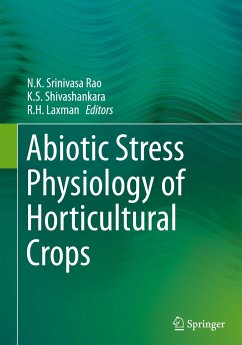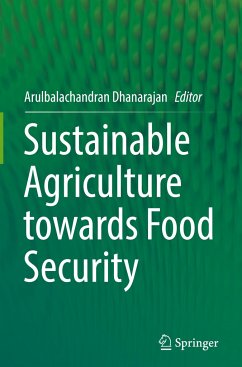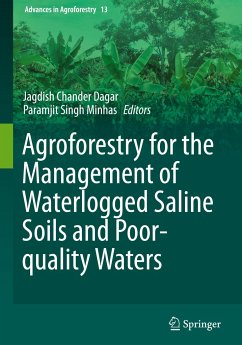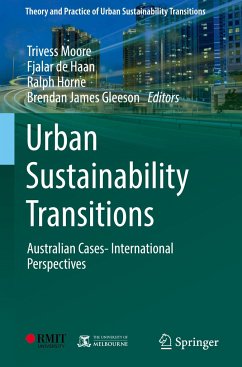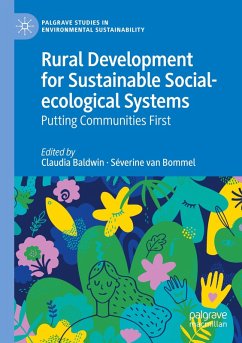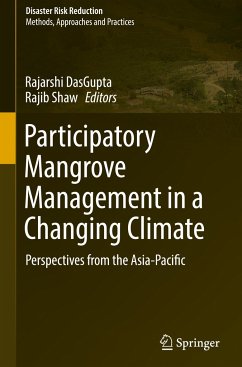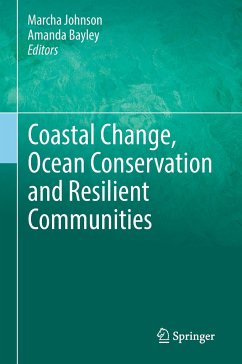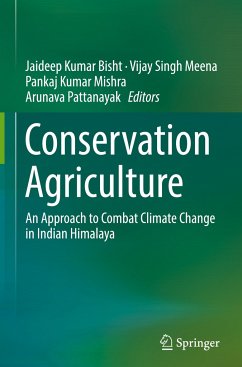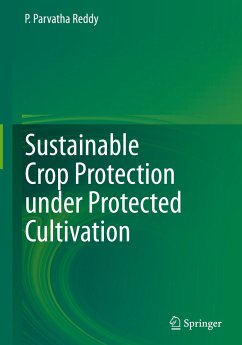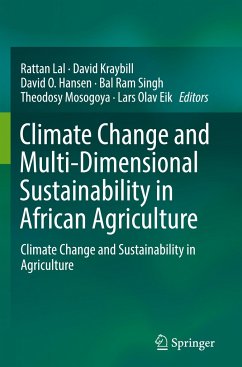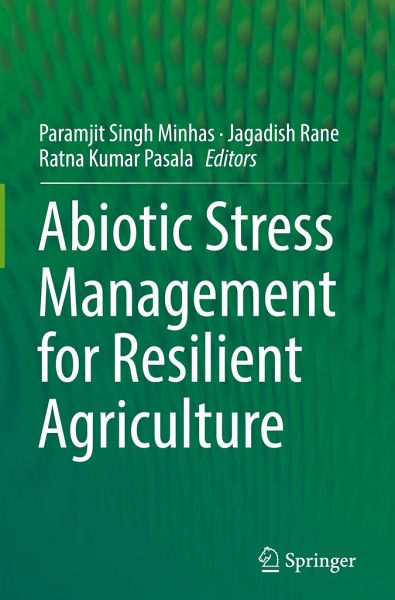
Abiotic Stress Management for Resilient Agriculture

PAYBACK Punkte
76 °P sammeln!
This book offers a state-of-the-art overview of on abiotic stresses in terms of the challenges; scope and opportunities; copping strategies for adaptation and mitigation using novel tools for building resilience in agricultural crops and livestock; as well as for policy implementation. Divided into four major parts: advances and prospects for understanding stress environments; adaptation and mitigation options; crop-based mitigation strategies; and mitigation options in animal husbandry, the book focuses on problem-solving approaches and techniques that are essential for the medium to long-ter...
This book offers a state-of-the-art overview of on abiotic stresses in terms of the challenges; scope and opportunities; copping strategies for adaptation and mitigation using novel tools for building resilience in agricultural crops and livestock; as well as for policy implementation. Divided into four major parts: advances and prospects for understanding stress environments; adaptation and mitigation options; crop-based mitigation strategies; and mitigation options in animal husbandry, the book focuses on problem-solving approaches and techniques that are essential for the medium to long-term sustainability of agricultural production systems The synthesis and integration of knowledge and experiences of specialists from different disciplines offers new perspectives in the versatile field of abiotic stress management, and as such is useful for various stakeholders, including agricultural students, scientists, environmentalists, policymakers, and social scientists.



